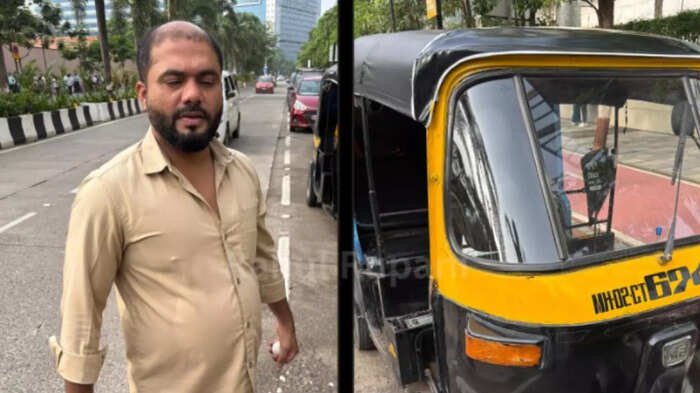A story that recently went viral on social media involves an auto-rickshaw driver in Mumbai, who was reportedly earning between ₹20,000 to ₹30,000 per day — amounting to an astonishing ₹5 to ₹8 lakh per month. However, this impressive income stream came to a halt after a single misstep that drew police attention.
The Secret Behind the Driver’s Unusual Earnings
This auto driver used to operate near Bandra Kurla Complex (BKC), right outside the U.S. Consulate in Mumbai — a high-security zone where visitors are not allowed to carry bags or electronic items inside during their visa appointments.
A few weeks ago, Rahul Rupani, a product leader at Lenskart, shared his experience on social media. Upon arriving at the consulate, he learned that no storage lockers were available. That’s when he came across the auto driver, who offered to safeguard his belongings during the appointment—for a fee of ₹1,000.
Apparently, the driver was providing this service to 20–30 people daily, making substantial income simply by temporarily storing visitors’ personal items.
Police Crack Down on the Operation
This unofficial business model came under scrutiny when the BKC police station began investigating the matter. Authorities discovered that a total of 12 auto-rickshaw drivers were involved in a similar setup, storing people’s valuables without any license or formal arrangement.
In some cases, the items were kept in nearby shops, raising further security concerns.
Since the U.S. Consulate is a high-security zone, the police deemed this practice a potential security threat. Officers quickly shut down the operations and issued strict warnings to all drivers involved, advising them not to repeat such activity in the future.
From Lakhs to Zero
What seemed like a clever side hustle turned out to be an unauthorized and risky venture. While the driver was making lakhs each month, the lack of legal clearance and security protocols ultimately brought his venture to an abrupt end.
This incident highlights the fine line between entrepreneurship and legality, especially when operating in sensitive areas like international embassies.

